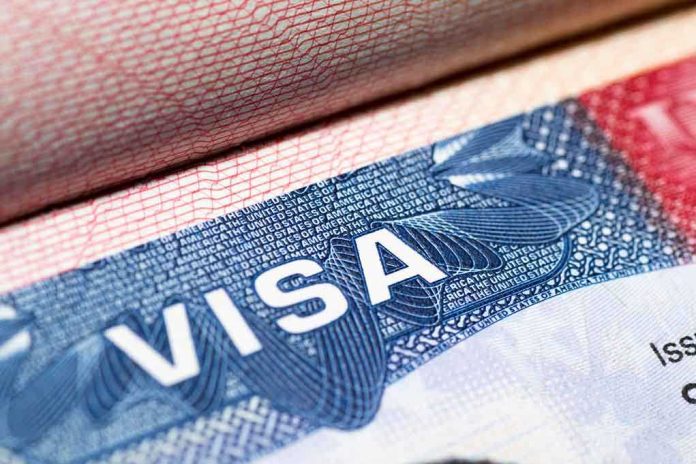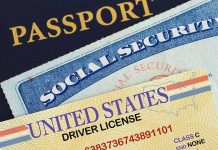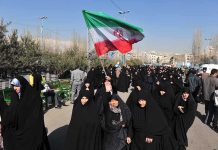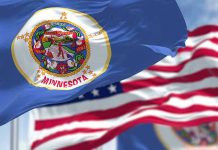
Millions of World Cup fans may soon witness a visa system engineered as much for spectacle and politics as for global mobility—one that could redefine America’s approach to international events and immigration.
Story Snapshot
- Trump unveils the “FIFA Pass,” a first-ever fast-track visa for World Cup ticket holders.
- Standard security vetting remains, but ticketed fans are prioritized for entry.
- Announcement arrives amid trade tensions and heightened scrutiny of host city safety.
- Diplomatic impact and precedent set for future sporting event visas.
Trump’s FIFA Pass: A New Playbook for Sporting Event Immigration
President Donald Trump has introduced the FIFA Pass, a dedicated visa system designed to expedite entry for millions of international fans attending the 2026 FIFA World Cup in the United States. This initiative marks the first time a U.S. administration has created a bespoke path for sporting event visitors, signaling a dramatic shift in how America balances border security with the economic and diplomatic opportunities of hosting a global event.
The FIFA Pass announcement arrived on November 17, 2025, followed by Trump’s presentation of the World Cup trophy in the Oval Office. With the tournament draw approaching in Washington, D.C., the administration is moving quickly, promising that fans holding verified tickets will receive prioritized visa interview slots. However, Trump emphasized that standard vetting procedures remain in place—security will not be compromised for the sake of speed.
Security, Diplomacy, and Leverage: How Politics Shapes the Game
The context for the FIFA Pass is complex. The United States, Canada, and Mexico are co-hosting the 2026 World Cup, a first for the tournament. Against this backdrop, U.S. immigration policy has grown increasingly strict, especially for large international gatherings. Trade disputes with Canada and Mexico compound the situation, and Trump’s warning to strip host cities of matches if safety standards are not met injects a new element of political leverage.
Trump’s approach is strategic: showcasing American hospitality while reinforcing the image of a nation unwilling to compromise on security. The Department of State faces the challenge of efficiently processing a flood of applications without diluting its vetting standards. FIFA, eager to maximize attendance and global reach, partners with the administration for ticket verification. Meanwhile, host cities eye the economic windfall and global exposure, aware that their readiness will be closely scrutinized.
Ripple Effects: Economic, Social, and Political Stakes
Short-term, the FIFA Pass promises a surge in visa applications and expedited processing for ticket holders, potentially boosting tourism revenue and creating jobs in host cities. Yet, the system could strain resources for other categories of travelers and spark diplomatic tension with co-host nations over border policies. Trump’s stance may have implications for U.S. relations with FIFA, Canada, and Mexico, as well as for future international events on American soil.
Long-term, the FIFA Pass may set a precedent for future sporting event visas, influencing broader debates on immigration reform. The program’s success—or failure—could shape the U.S. reputation as a host for global gatherings. Experts in immigration and sports management agree that while prioritizing ticket holders streamlines entry and enhances America’s appeal, the initiative risks politicizing the event and exacerbating existing tensions.
Expert Commentary and Industry Perspectives
Immigration specialists point out that the fast-track system could simplify travel for fans but may divert resources from other vital visa categories. Sports industry analysts highlight the economic upside for host cities, but caution that increased diplomatic friction could undermine the benefits. Political scientists view the FIFA Pass as an exercise in soft power—leveraging a sporting event for domestic and international messaging.
Security experts stress that maintaining rigorous vetting is non-negotiable, regardless of expediency. Some commentators praise the initiative for promoting international goodwill and cultural exchange, while critics warn it may politicize the World Cup and heighten diplomatic strains. With implementation details pending, all eyes are on the administration’s next steps as the tournament draw approaches.
Sources:
Politico: Trump to prioritize visas for World Cup ticket holders













